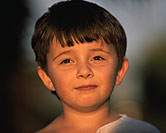
MONDAY, Feb. 21 (HealthDay News) — Children who display a lack of emotion and a lack of empathy or guilt — features that psychologists call “callous-unemotional traits” — are at risk of antisocial behavior and other adjustment problems, research shows.
An analysis of data from more than 9,000 twins born in England and Wales between 1994 and 1996 found that high levels of both callous-unemotional traits and conduct problems were associated with negative child and family factors at age 4, including negative parental discipline and chaos in the home. High levels of the traits and conduct problems were also linked to behavioral issues at age 12, including problems with peers.
Callous-unemotional traits are found in a small number of children and are associated with persistent conduct problems, which occur in 5 to 10 percent of children, the researchers explained.
Although the problematic traits are linked to conduct problems, the converse is not always true: high levels of conduct problems are not necessarily linked to high levels of callousness or lack of emotion in children, the researchers noted.
In most cases, the emergence of callous-unemotional traits in childhood appears to be influenced by genetic factors, especially in boys.
However, environmental factors seem to be more significant for the small number of girls who have high levels of these traits, according to the researchers.
“The children with high levels of both callous-unemotional traits and conduct problems between ages 7 to 12 were likely to present negative predictors and outcomes, including hyperactivity problems and living in a chaotic home environment,” researcher Nathalie M.G. Fontaine, an assistant professor of criminal justice at Indiana University, said in a university news release.
She stressed, however, that callousness and lack of emotion in children did not mean that the youngsters were likely to become psychopaths or juvenile delinquents.
“If we could identify those children early enough, we could help them as well as their families,” she added.
The findings were scheduled for presentation Feb. 20 at the annual meeting of the American Association for the Advancement of Science, in Washington. D.C.
The research was based on findings from two studies, including one published in July 2010 in the Journal of the American Academy of Child & Adolescent Psychiatry and the other slated for online publication this week in the Journal of Abnormal Psychology.
More information
The American Academy of Pediatrics has more about child behavior.

